Kinhtedothi - To avoid wasting land resources in the field of transportation in general and vehicle parking in particular, there should be specific policies associated with the revised Law on the Capital, and at the same time, local authorities must enhance their responsibility to dare to think and dare to do.
Those are the discussions of Master of Urban Management Phan Truong Thanh with Kinh te & Do thi around the issue of Hanoi lacking parking spots.

How do you view the current situation of both a lack of parking spaces and a series of abandoned land plots in Hanoi ?
- While the city is lacking investment capital for static traffic infrastructure projects, people lack proper parking spaces, a series of public land areas without projects or land with slow project implementation are left vacant, or turned into "illegal" parking lots, these are huge and regrettable wastes. Not only is it a waste of resources, it also leads to consequences for security, order, and traffic safety, showing some shortcomings and problems in State management.
Specifically, what kind of waste is it, sir?
- First is the waste of land resources, one of the main resources for socio-economic development. The State allocates land to investors to implement projects to contribute to socio-economic development. Leaving land fallow for many years without implementation is a waste of resources.
Delay or failure to implement projects according to planning has hindered socio-economic development; and leading to vacant land while people lack static traffic infrastructure is extremely wasteful. While waiting for projects to be implemented, if temporary permits are granted for parking there, money can be collected for the budget and jobs and income for people and businesses.
But due to problems in mechanisms and policies, not being able to grant licenses and leaving them empty is a waste of economic efficiency. On the other hand, not granting licenses to legal parking units, leaving vacant land to become "illegal" parking lots, money flowing into private pockets, the city and the people have to bear the cost, which is a waste and loss of social assets.
On the business side, recently they have been very interested in static traffic projects in general and investing in temporary parking lots in particular, no one wants to build "illegal" parking lots, violating the law. However, the problems with mechanisms, policies, and the confusion of the district and county People's Committees have discouraged them and made them give up. Not being able to retain businesses is also a waste of social resources, while the city is still facing many difficulties.
That reality requires early remediation to make good use of all resources, both contributing to meeting people's needs and expectations and preventing waste and loss.
According to you, what is the underlying cause of not granting temporary parking permits on slow-to-implement project land or vacant land?
- The general guiding viewpoint has recognized this problem and has oriented to handle and resolve it. However, the concretization by regulations and instructions as a basis for implementation is still lacking. More deeply, it is due to the ineffective management of localities, even negligence and lack of proper attention.
The granting of temporary parking permits in the above-mentioned land areas is the primary authority of the People's Committees of districts. If the legal regulations are not yet available or are unclear, the locality must advise and propose for the City to develop or complete, and clearly state in writing as a basis for implementation.
Many localities only issue documents asking higher levels or specialized departments without any advice or recommendations, which is not a high sense of responsibility. There are even individual cases where the responsibility and decision-making authority are under their responsibility but they still avoid and push it to higher levels, showing a timid, hesitant mentality, not daring to think or do.
On the other hand, many districts reported that there was not enough basis to grant temporary parking permits on suspended project land or vacant land, but illegal parking lots were allowed to spring up and exist for a long time, causing waste to the State and difficulties for the people. If proper parking is not allowed, why are illegal parking lots still allowed to arise (?). That is a very thoughtful issue.
There are concerns that granting temporary parking permits on land for projects that are slow to develop or that are vacant will lead to difficulties in land recovery, or cause the project to be “suspended” for even longer. What is your opinion on this issue?
- I think there is no need to worry about that issue. Temporary parking permits are limited in time and have conditions attached (in any case when the State requests to withdraw at any time, it must be handed over unconditionally and without compensation).
The People's Committees of districts and towns can base on the reality of each land area to grant licenses; clearly state the licensing period with binding conditions. When there is a request to revoke or stop operations, if the enterprise is slow to return the land, then enforce, revoke, or coordinate with the competent authorities to temporarily suspend the enterprise's operations. We have enough sanctions to prevent the situation of deliberate procrastination and land grabbing.
Furthermore, projects that have been “suspended” for a long time should be resolutely reclaimed and not extended. It is not necessary to build a parking lot that means the project can be extended as long as desired. Land is an important resource for socio-economic development, it cannot be wasted, it must be fully utilized, bringing practical results both in the short term and in the long term. To do so, it is necessary to strengthen management, flexibly apply mechanisms, policies and regulations of existing laws.
Any regulations that are not yet available or are not complete must be adjusted and supplemented. The implementation process must be strict and decisive. We cannot avoid doing them because we are afraid of risks.
To prevent, overcome waste, and expand static traffic infrastructure to serve the people, what should Hanoi do, sir?
- First of all, the city needs to continue to strengthen decentralization and delegation of power; localities must promote a higher sense of responsibility. Organizing temporary parking lots with fees in vacant lots is very necessary and can be done if each locality pays due attention to this issue.
The People's Committees of districts and towns need to review the reality, report difficulties and problems along with solutions for the Hanoi Party Committee, People's Council and People's Committee to consider and issue appropriate regulations in writing. Only with a specific and clear legal basis can it be implemented.
Not only temporary parking on vacant lots, but also parking and vehicle monitoring on large-width roads still need to continue to be implemented to meet people's parking needs. If current regulations are not suitable or inadequate, the locality must report and propose adjustments to higher levels.
The city has issued temporary regulations on vehicle parking, requiring all to apply cashless toll collection with direct connection to tax authorities for transparency of revenue sources. This is a very important condition to prevent waste in exploiting static traffic infrastructure. The People's Committees of districts and towns only need to implement correctly, only granting parking permits to enterprises that have invested in cashless toll collection systems, and will see immediate results.
Thank you very much!
Source: https://kinhtedothi.vn/phan-cap-phan-quyen-nang-cao-trach-nhiem-chinh-quyen-dia-phuong.html


![[Photo] The Prime Ministers of Vietnam and Thailand witnessed the signing ceremony of cooperation and exchange of documents.](https://vphoto.vietnam.vn/thumb/1200x675/vietnam/resource/IMAGE/2025/5/16/935407e225f640f9ac97b85d3359c1a5)
![[Photo] Welcoming ceremony for Prime Minister of the Kingdom of Thailand Paetongtarn Shinawatra on official visit to Vietnam](https://vphoto.vietnam.vn/thumb/1200x675/vietnam/resource/IMAGE/2025/5/16/cdd9e93739c54bb2858d76c3b203b437)
![[Photo] Prime Minister Pham Minh Chinh holds talks with Prime Minister of the Kingdom of Thailand Paetongtarn Shinawatra](https://vphoto.vietnam.vn/thumb/1200x675/vietnam/resource/IMAGE/2025/5/16/23b5dd1e595d429491a54e3c1548fb79)






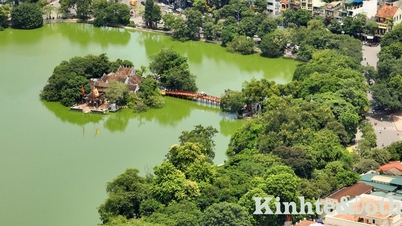

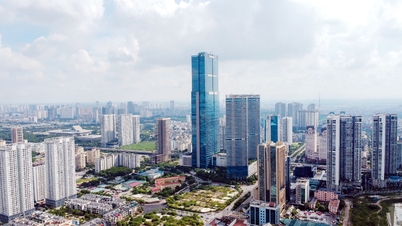


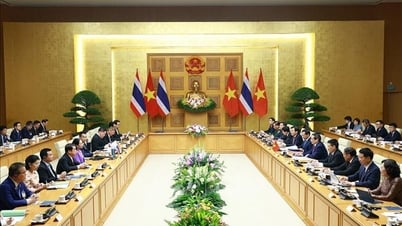



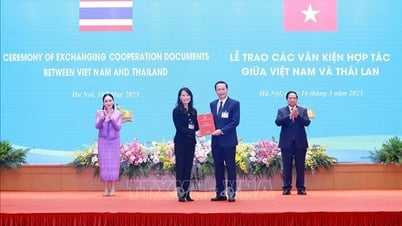


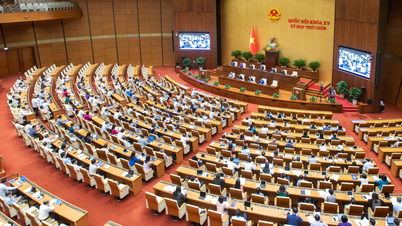












































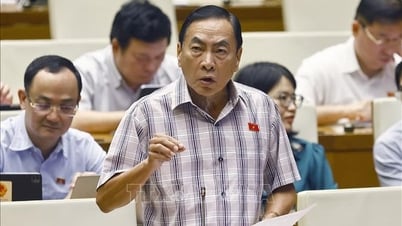
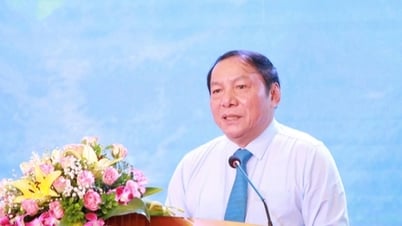



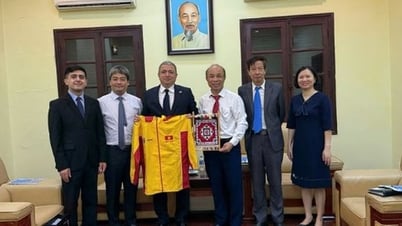

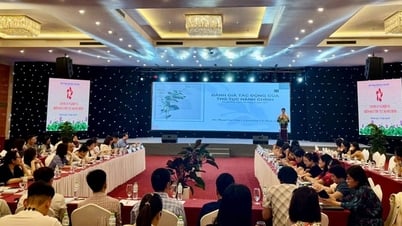
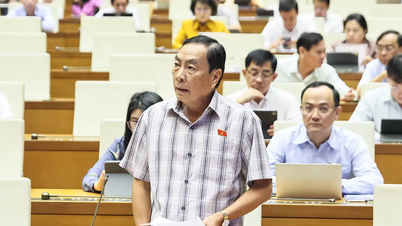







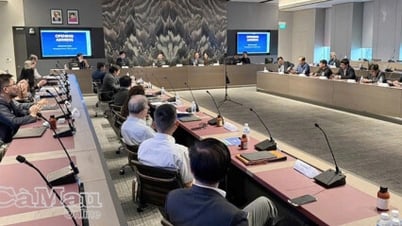











Comment (0)